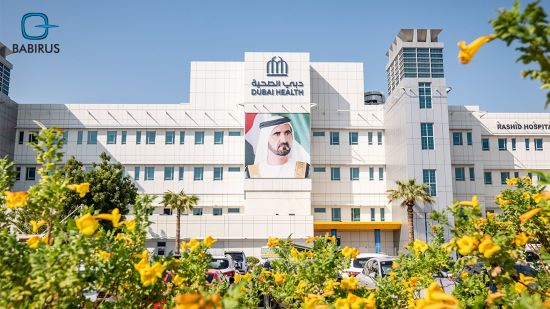What Are the Health Authorities in the UAE?

The healthcare authorities in the UAE work together to establish a strong and stable dynamic system with high standards, innovative approaches, and commitment to providing comprehensive healthcare services for all residents.
Moreover, the main goal of the working health authorities in the UAE is not only to establish the perfect healthcare system but also to ensure that both citizens and residents have access to quality healthcare facilities and services across the nation.
In this article, we will share with you a full overview of the health authorities in the UAE, while exploring their roles, responsibilities, and the structure of healthcare governance at both federal and emirate levels.
Understanding the Structure: Federal vs. Emirate-Level Authorities
Although there are many challenges facing the healthcare system in the UAE, yet, healthcare authorities in the UAE are achieving great development numbers on all levels.
The healthcare authorities in the UAE operate under a dual structure comprising federal and emirate-level authorities to ensure comprehensive healthcare coverage.
· Federal Level:
At the federal level, the Ministry of Health and Prevention (MoHAP) plays a crucial role, especially, since the MoHAP is responsible for developing national health policies, regulations, and standards.
Moreover, the MoHAP is the authority responsible for managing the implementation of these policies across the UAE to ensure consistency and high-quality healthcare services.
· Emirate Level:
Each emirate has its own health authority to manage healthcare services locally, however, these authorities operate under the broader guidelines set by MoHAP but have the independence to address the unique healthcare needs of their respective emirates.
Key emirate-level health authorities in the UAE include the Dubai Health Authority (DHA), the Abu Dhabi Department of Health (DoH), the Sharjah Health Authority (SHA), Ras Al Khaimah Health Authority (RAKHA), the Ajman Department of Health (DOH), Umm Al Quwain Health Authority (UAQHA), and Fujairah Department of Public Health (DPH).
The Ministry of Health and Prevention (MoHAP):
The Ministry of Health and Prevention (MoHAP) is a central pillar of the UAE’s healthcare system. Furthermore, the MoHAP’s main mission is to improve the population’s health by providing comprehensive, high-quality health services.
The MoHAP ministry focuses on several key areas, including:
- Policy development and implementation.
- Regulation and oversight.
- Public health initiatives.
MoHAP is responsible for creating national health policies that align with international standards of care and patient safety. Moreover, implement these policies successfully across the UAE. The ministry also regulates healthcare providers, facilities, and pharmaceuticals to ensure they meet all regulations, including medical equipment regulations in Dubai.
Additionally, MoHAP runs various public health programs aimed at disease prevention, health promotion, and raising awareness about critical health issues.
Emirate-Level Health Authorities:
While MoHAP handles broad policies and regulations, emirate-level health authorities in the UAE cater to the specific healthcare needs of each emirate, here are some of the key emirate-level health authorities:
· Dubai Health Authority (DHA):
The Dubai Health Authority (DHA) is responsible for the strategic oversight of the healthcare sector in Dubai. DHA oversees both public and private healthcare facilities, ensuring they meet the required standards.
The authority also manages Dubai’s health insurance system, providing coverage to residents and ensuring that insurance policies comply with regulatory standards.
· Abu Dhabi Department of Health (DoH):
In Abu Dhabi, the Department of Health (DoH) controls healthcare services, ensuring that all health providers comply with the highest standards.
The DoH also focuses on health promotion, disease prevention, and the development of healthcare infrastructure, catering to the unique needs of Abu Dhabi’s residents.
· Other Health Authorities in the UAE:
Next to the MoHAP, other health authorities operate in different emirates of the UAE, including:
- Sharjah Health Authority (SHA).
- Ras Al Khaimah Health Authority (RAKHA).
- Ajman Medical District.
- Umm Al Quwain Medical District.
- Fujairah Medical District.
The overall objective of these authorities is to promote public health and provide accessible and high-quality healthcare services to their respective emirates.
Choosing theRight Authority: A Guide for Patients
For UAE residents and visitors, understanding which health authority in the UAE to approach can be crucial for accessing the right healthcare services:
- For nationwide health issues, policies, and regulations, MoHAP is the primary authority.
- Residents living in Dubai should refer to the DHA for local healthcare services, insurance matters, and medical tourism.
- Residents in Abu Dhabi should consult the DoH for emirate-specific healthcare services.
- Residents of Sharjah should turn to the SHA.
And likewise for other emirates who have their respective local health authorities for tailored healthcare services.
Collaboration and Coordination:
Collaboration between MoHAP and emirate-level health authorities to achieve a complete and stable healthcare system. As this collaboration can guarantee that national health policies are effectively implemented at the local level which is required to standardize healthcare services across the UAE.
This collaboration is done through regular coordination meetings, shared health initiatives, and a unified approach to facing public health challenges.
5 FAQs About the Health Authorities in the UAE:
It is time to share with you the most important questions with answers about the health authorities in the UAE:
1 How Do I Find the Nearest Healthcare Facility in My Emirate?
Each emirate-level health authority typically provides directories or online tools to help residents find the nearest healthcare facilities. Checking the official website of your emirate’s health authority can provide this information.
2 Are There Any Differences in Healthcare Services Provided by MoHAP and Emirate-Level Health Authorities?
Yes, while MoHAP sets national standards and policies, emirate-level health authorities tailor their services to meet local needs. And this by default will lead to some differences in services and regulations between emirates.
3 How Does Medical Tourism Fit into The Healthcare System in the UAE?
Year after year, medical tourism is growing and becoming an important component of the UAE’s healthcare system, particularly in Dubai. The Dubai Health Authority (DHA) has positioned Dubai as a global hub for medical tourism by actively promoting and regulating this sector.
Furthermore, the DHA ensures that healthcare facilities meet international standards of care, by providing world-class medical services to international patients. Moreover, facilitates medical tourism by making visas easy and possible for international patients.
Additionally, Dubai’s strategic location, advanced medical infrastructure, highly skilled healthcare professionals, and a wide range of specialized treatments play a big role in attracting patients from around the world.
4 What Health Insurance Options Are Available in the UAE?
In the UAE, health insurance is mandatory and managed at the emirate level:
- In Dubai, the Dubai Health Authority (DHA) oversees health insurance, offering a range of plans that cater to different needs and budgets.
- In Abu Dhabi, the Department of Health (DoH) manages health insurance with comprehensive plans for residents.
- Other emirates, such as Sharjah, Ajman, Umm Al Quwain, Ras Al Khaimah, and Fujairah, have their own systems and regulations in place to ensure residents have access to necessary health coverage.
Moreover, employers typically provide health insurance to their employees, but individual plans are also available for those not covered by their employer.
5 How Can I Ensure the Healthcare Provider I Choose Meets Quality Standards?
The Ministry of Health and Prevention (MoHAP) and emirate-level health authorities legalize healthcare providers to ensure they meet rigorous quality standards.
Thus, checking for accreditation and licenses through official health authority websites is the best way to verify an insurance provider’s credentials.
In summary,
If you are living or planning to live in the UAE, it is essential to learn and understand the system of the health authorities in the UAE, and its level of working.
To benefit from the provided and quality services, and get the best medical services from the best medical suppliers and healthcare professionals in the UAE.

